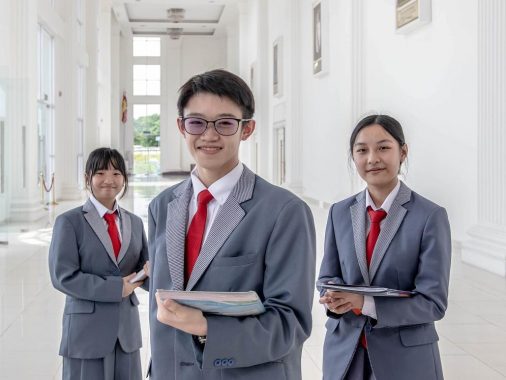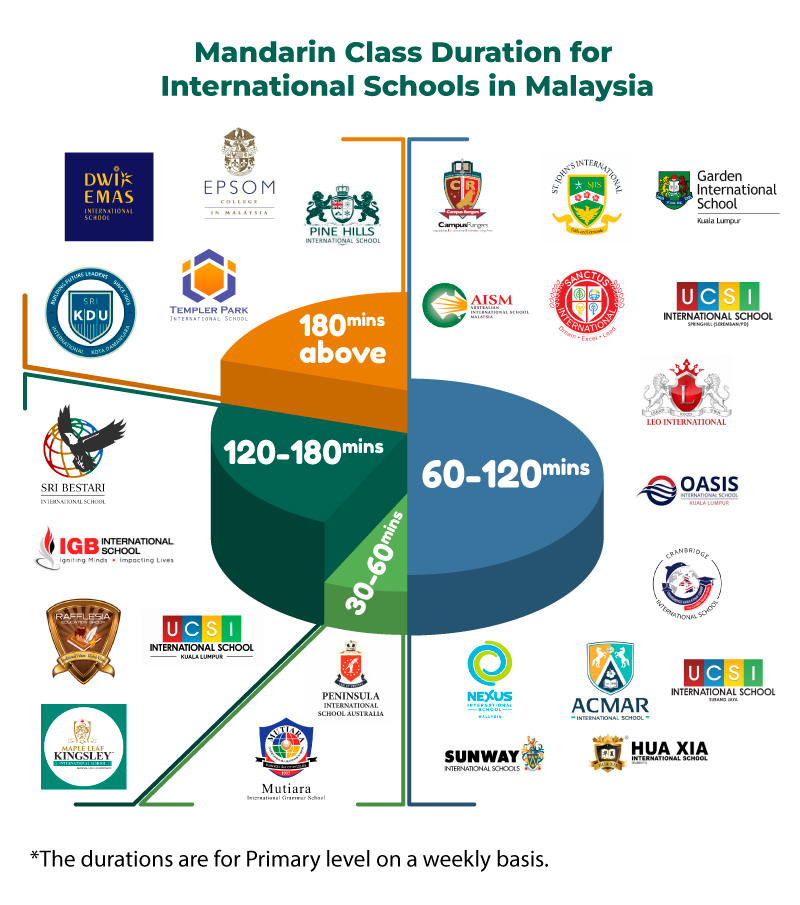Mandarin programmes in international schools: what to consider before enrolling
by on 06/06/2024 ...

English may be the primary medium of instruction at international schools in Malaysia, but an increasing number of families are seeking out schools that can offer quality Mandarin programmes as well.
This comes as no surprise, seeing as how Mandarin Chinese is currently spoken by over 1.1 billion people around the globe. China’s growing influence as the world’s second largest economy also means that students who are proficient in the language may have better opportunities when they enter the working world.

However, learning and mastering a language can be a complex process. Your child’s interest is, of course, paramount–but there are also other factors to consider, which will influence the outcomes for their education.
In this article, we’ll cover a few essential points that parents can explore, as well as how to weigh if an international school’s Mandarin programme is the right one for your child.
Align objectives and match intensity levels
Is the goal for your child to have a basic understanding of the language, or to achieve fluency? Determining this from the get-go will help you align your expectations with the programmes being offered at different schools.
If fluency is key, then you might want to consider a school where Mandarin is a core part of the curriculum. Rafflesia International School has Mandarin as a mandatory course, as the school emphasises proficiency in English, Bahasa Malaysia, and Mandarin.
Sri KDU schools (above) also place importance on trilingual proficiency, whereby it is compulsory for students in Primary 1 to Secondary 3 to learn English, Bahasa Melayu, and Mandarin.

For those who are looking at cultural immersion, there are also schools that have rich cultural activities and events alongside their language classes, such as Hua Xia International School, Seri Kembangan (above). The school’s Talent Club offers a wide range of activities centred around Chinese culture, including wushu, traditional dance, drama, and music.
Consider your child’s age and existing proficiency
We’ve covered this in a previous article, but according to experts, the prime age to learn a new language is before a child turns 10, as this is the time that their brains have the most plasticity.
If you’re truly keen on your child picking up as much Mandarin as possible from a young age, then an immersive programme is worth looking into.

Epsom International School, Malaysia (above) offers an English Mandarin Immersion Programme (EMIP), which comprises a unique 50-50 curriculum, designed to achieve proficiency in both English and Mandarin. Classes are conducted in small groups with two teachers and are open with limited slots to students between the Early Years Foundation Stage (EYFS) and Year 2.

Younger children tend to benefit from shorter, more frequent classes, so shorter Mandarin classes with interactive, engaging activities will be ideal for this age group.
Older students on the other hand usually thrive in longer, more focused classes that delve deeper into language structure and vocabulary. Here is a list of schools with Mandarin classes, according to duration:

| Duration / week | Schools |
|---|---|
|
30 – 60 minutes |
|
|
60 – 120 minutes |
|
|
120 – 180 minutes |
|
|
180 minutes and above |
*Schools listed are in no particular order
If your child has Chinese language knowledge prior to enrolment, then consider schools that offer levelled programmes (for example, Mandarin as a First Language, Foreign Language, or Second Language), so that your child can be appropriately challenged to their respective levels.
Future education pathway
Does your plan include enrolling your child to further their studies overseas in China? Then the HSK (Hanyu Shuiping Kaoshi), also known as the Chinese Proficiency Test, is a must.

HSK is a standardised test to prove Chinese language proficiency and is essential for international students who wish to apply for admission, graduation, and scholarship in China.
Sri Bestari International School (above) is one of the schools that incorporates HSK into their academic curriculum at both the primary and secondary levels. Mandarin is a compulsory subject at the school, and students are prepared for the test according to their year level and abilities.
Balancing Mandarin with the overall curriculum
Some parents may have concerns about Mandarin impacting learning time for other subjects—but they shouldn’t be.
Multiple studies have shown that bilingualism, especially among younger children, can have lasting benefits—from enhancing their critical thinking and communication skills, to improving global awareness and complementing their overall education. A quality international school will be able to effectively integrate Mandarin into their broader curriculum, without compromising on other academics.

In summary, choosing the right Mandarin programme at an international school in Malaysia involves careful consideration of the family’s goals, the intensity of Mandarin instruction, the child’s age and prior knowledge, possible future pathways, and finding a balance with the overall curriculum.
By prioritising these factors, families can ensure that their children receive a well-rounded Mandarin education that aligns with their individual needs and aspirations.
Looking for the best international school options for your child? Kiddy123 is the No.1 early childhood directory in Malaysia, where we assist parents in locating international schools, primary schools, secondary schools, and more. Contact us today at +6010-2598026.
*All information provided in this article is correct at press time.

















![Chinese Government School (SJK[C]) vs International School: Which Is Better Chinese Government School (SJK[C]) vs International School: Which Is Better](https://www.kiddy123.com/wp-content/uploads/2025/08/sitemgr_photo_66216.jpg)
















